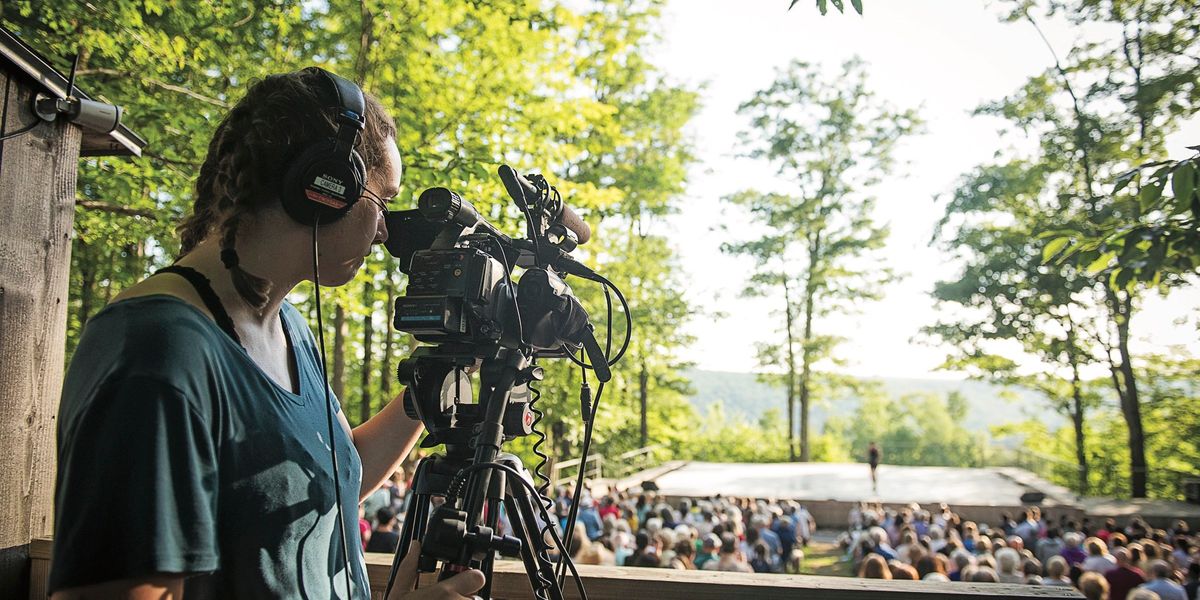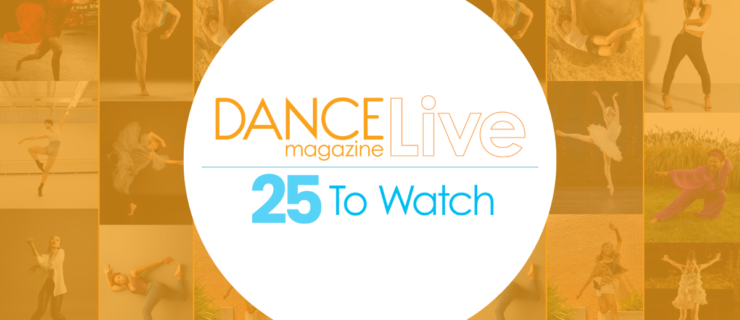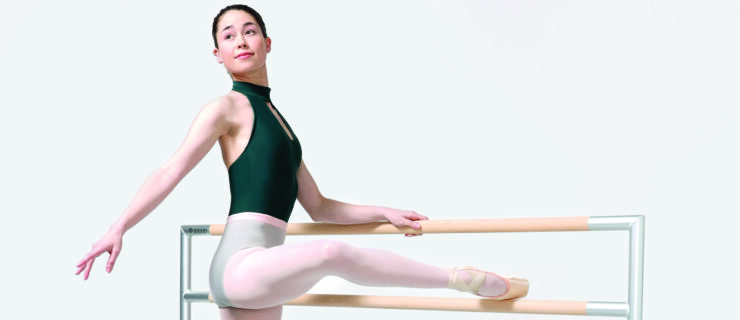Could Your Dancing Benefit from a Dance-Adjacent Internship?
For dancers, summer break usually means it’s time to head to a dance intensive. But if you’re looking to broaden your horizons beyond the studio, a dance-related summer internship might be the way to go.
Pursuing an internship in a field like arts administration, production, community outreach, or casting doesn’t mean you’re giving up on a performing career. Experiencing the dance world offstage could help you discover interests and skills you didn’t know you had, enrich your understanding of the dance scene, and inform your work as a performer. It’s always valuable to see dance from multiple perspectives.

A production intern at Jacob’s Pillow (Grace Kathryn Landefeld, courtesy Jacob’s Pillow)
In the Office
Arts administration is a broad term that can cover anything from doing social media for a dance festival to writing grants for a company. Generally speaking, arts administrators keep dance organizations running smoothly, and keep audiences informed and interested in upcoming events. An internship in arts admin would be perfect for a dancer who also has strong writing and communication skills, or even an interest in graphic design.
There are many specialties within the arts admin field. Marketing internships might include designing and distributing marketing materials and posting on social media platforms. Public relations interns might write press releases, which are official statements given to journalists about important events like company promotions or upcoming performances. Interns in the development department for a festival, company, or dance nonprofit might spend their summers applying for grants, coordinating with donors, or planning fundraisers. Dancers with an interest in math could intern with an organization’s finance department.
Bridget Ryan, a recent graduate from Denison University’s dance department, completed an arts admin internship with the Mark Morris Dance Group while an undergrad, and at the American Dance Festival (ADF) after graduation. “Through my internships, I learned to think critically and creatively, to take advantage of opportunities outside my comfort zone, to be adaptable, and to be wholeheartedly invested in the work I’m doing,” Ryan says.
Elise Chen—who completed internships with Boston Ballet and Jacob’s Pillow, and studied journalism while participating in student-run dance organizations at Emerson College—agrees. “The skills you learn in the office are still important to your career,” Chen says. “If your dream is to start your own company, it’s really important to learn how to write grants or press releases, or communicate with the production team. Or, if you want to dance with an established company, sometimes it’s really important to have the administrative skills to do part-time jobs while you’re pursuing your dreams.”

American Dance Festival interns in a meeting (Ben McKeown, courtesy ADF)
Production
For dancers who are interested in what goes on backstage as well as onstage, a production internship could be a good fit. Production interns might specialize in one area, such as lighting, stage management, or costuming, or they might have a position that allows them to explore multiple aspects of production.
“I’ve always been curious about the process of creating a dance performance from a behind-the-scenes perspective, which I don’t get the opportunity to do a lot during the school year,” says Isoke Wright, a dance major at Point Park University who was a stagecraft apprentice with ADF in 2019. During performances, she and fellow ADF stagecraft apprentice Will Brighton, a dance major at Western Michigan University, alternated preparing the stage and operating the rail, the sound board, and the light board. “For me, the biggest takeaway was a sense of what it means to work in the dance production industry, especially trying to balance it with a career as a professional dancer,” Brighton says. “The long hours were definitely exhausting, but after finishing the season at ADF, I felt even more confident in my chosen career.”

Jacob’s Pillow interns working at will call (Christopher Duggans, courtesy Jacob’s Pillow)
Community Outreach
Dancers with a passion for sharing dance with their community or a background in customer service could thrive in an internship dedicated to community outreach. Possible roles in this area include working in a box office, helping with children’s events, or house management.
Emily Ames, a recent graduate from the University of Maryland, College Park with degrees in dance and history interned at Dance Place, a nonprofit that offers performances and dance education in Washington, D.C. Her title was “box office/marketing intern,” but she was able to expand into other areas that interested her. “Within a few months of finishing the internship, I accepted a full-time marketing job at The Studio Theatre in DC,” she says. “The skills I developed at Dance Place directly translated to the real world, and my internship experience gave me an advantage when applying to arts administration jobs.”

Jacob’s Pillow interns working in the costume archive (Grace Kathryn Landefeld, courtesy Jacob’s Pillow)
Getting Started
Landing a dance-related internship may seem like a daunting task, especially when internship programs for well-known arts organizations have long applications and detailed criteria for what they want in an intern. During the school year, consider volunteering with a community theater or smaller local company in order to gain relevant experience. Taking specific classes in production, arts administration, or even business or communications writing could also be helpful, if they are available to you.
In your application, “make sure that you convey enthusiasm for the field and a willingness to be a team player who will do what it takes to get the job done,” says Sarah Tondu, ADF’s director of communications and marketing, who hires an intern every summer. “Great communication skills and a sense of humor are nice, too!”
Even if you aren’t sure you are qualified for the position, apply anyway. Don’t lie on your application or resumé, but remember that internships are as much about what the job can teach you as they are about what you can do for the organization.




